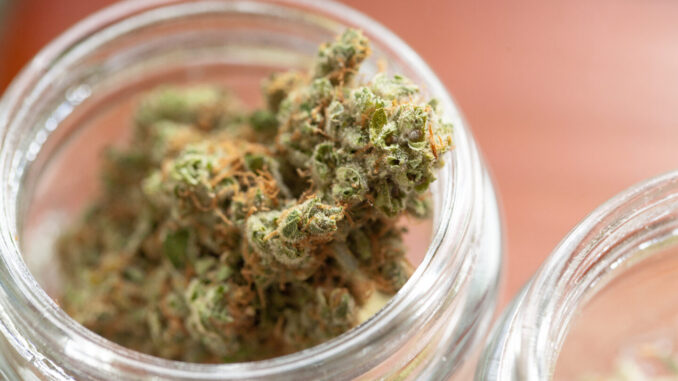
[ad_1]
The New York Cannabis Control Board (CCB) met on Feb. 16 and voted on a few new cannabis draft rules, including cultivation and research, and also announced the first round of adult-use licenses.
The CCB approved a regulation proposal describing potential plant limits and possession amounts, the Feb. 16 meeting kicked off with a 60-day window for public comment. Current rules propose that adults would be allowed to grow up to six plants, only three of which can be mature at a time. If a residence is home to more than one adult, the maximum number of plants can increase up to 12. Additionally, residents may possess up to five pounds of cannabis. Any home grown plants must be stored securely and must not be visible from public view, and the rules establish limitations for people with more than one residence, and also add a rule about potential odor issues and complaints by neighbors.
The agency also approved the state’s first two cannabis research licenses. “These licenses pave the way for groundbreaking research studies that will help us better understand the full potential of the plant,” the CCB wrote on social media.
However, the most noteworthy decision featured the CCB approving its first round of adult-use cannabis licenses from applications submitted in 2023, for a total of 109 licenses for the state. Additionally, 38 new licenses are retail-specific, and 26 are microbusiness licenses. The CCB also announced that it has sent 350 deficiency letters to applicants asking for various updates, which must be addressed within 30 days.
Currently, the only cannabis business license holders in the state were approved under the Conditional Adult-Use Retail Dispensaries (CAURD) program, which were granted specifically to social equity applicants. While those business owners hold conditional licenses, the CCB’s most recent round of licenses are the first non-conditional licenses to be granted, meaning that they did not qualify as social equity applicants.
CCB chair Tremaine Wright spoke at the meeting, expressing his relief that the time has come to move forward with New York’s cannabis industry. “This moment has been a long time in the making,” said Wright. “We assure you it only represents the beginning. The office has been diligently working to prepare as many applications as possible for consideration, and the board will continue to approve additional licenses at future board meetings.” He added that the CCB’s goal is to “tackle a number of the matters that we hope will help propel our industry forward.”
The meeting was initially scheduled to be held on Jan. 25, but Gov. Kathy Hochul asked the CCB to cancel the meeting the day before. “The Cannabis Control Board… has decided to postpone the meeting to finalize review of adult-use license applications currently under consideration for approval by the board,” the Times Union reported on the news. “While we have a batch of licenses ready for approval, there are many more we want to get across the finish line to jumpstart New York’s cannabis market in 2024. We want to ensure the issuance of as many licenses as possible, as soon as possible.” The CCB published a press release explaining that it was “held up by lawsuits from corporate interests.” At the time, only three dispensaries were intended to be announced for license approval, reported a news outlet called The City.
Hochul spoke to The Buffalo News editorial board on Jan. 24 and described the state’s recreational cannabis rollout as a “disaster.” “I will not defend that for one second,” she explained.
Former New York Gov. Andrew Cuomo signed the original cannabis regulatory framework in spring 2021, but Hochul took office in August 2021 after the legislation was already established. “You have to go back to the very beginning,” she explained. “Prior to my time [as governor], the legislation was crafted in a way that was not poised for success.” The first cannabis dispensary, a nonprofit called Housing Works, opened in New York City in December 2022.
Hochul expressed her frustration at how the illegal market continues to grow rapidly as well. “It’s not [on] every street corner,” Hochul said of illegal dispensaries. “It is every other storefront. It is insane.”
Hochul stated that she pushed for more strict laws in 2023 to prevent illegal sales from thriving, but to no avail. “I think it should be treated the way tobacco is: local law enforcement can stop illegal sale of cigarettes that are not licensed and taxed,” Hochul continued. “They don’t want to have the teeth in the law to stop the illegals.”
Part of the reason that it has taken so long for New York to gain speed on approving more licenses, according to Hochul, is due to prioritizing licenses for social equity applicants, which led to numerous lawsuits last August and a temporary halt for any new cannabis licenses. “We’ve got farmers who are just losing money. We’ve got these people who took out loans and are excited about their opportunities, ready to start,” she said. “And meanwhile, no money is flowing back to the state. We have all this, and the illicit market is flourishing.”
Ultimately, Hochul explained that she wished she could fix the issues with the law. “There’s a strong part of me that would just like to go in and just start over,” she explained. “But I’d have to go back to the legislature and convince them to change the laws in every way I’ve described. It’s probably not likely to happen.”
[ad_2]
Source link

Soyez le premier à commenter